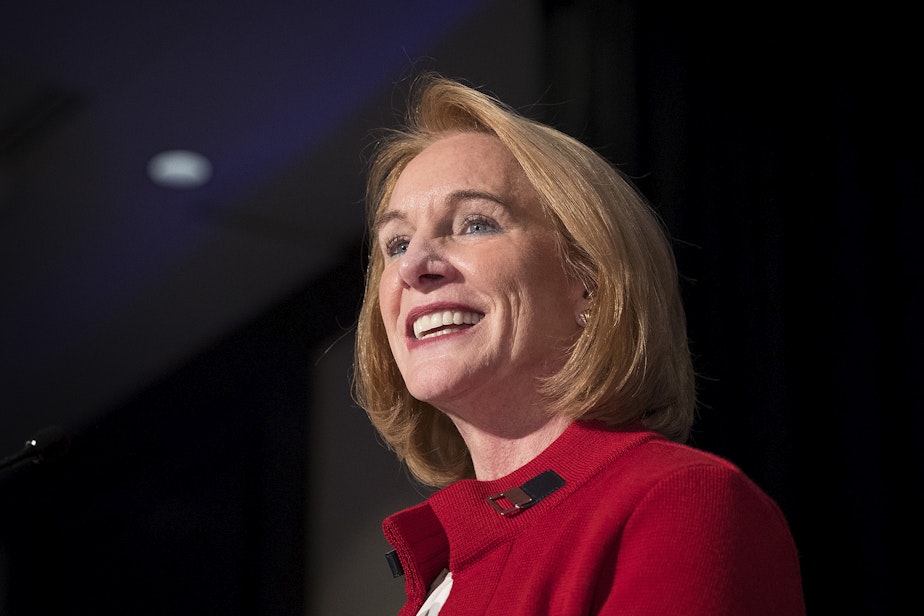Friday politics: Seattle mayor and council battle over police budget

Seattle Mayor Jenny Durkan rebuffed the Seattle City Council this week, laying out her own plans to reduce the police budget by about 20% and calling the Council's plan for considerably larger cuts "irresponsible."
So what does it all mean politically?
We asked our Friday politics team Joni Balter, host of civic cocktail on the Seattle Channel, and C.R. Douglas, political analyst for Q 13 News.
Paige Browning: Joni, what did you make of Durkan’s announcement?
Joni Balter: I thought it made a lot of sense. You know, the mayor has to be the adult in the room, she has to get a grip on leading if she wants respect. Her best point at that press conference was that the council members agreed to a 50% reduction without even consulting Police Chief Carmen Best. In other words, they didn't properly consider unintended consequences like whether they may harm younger officers of color or whether that would interfere with the city's response to the consent decree. I will quote Councilmember Debora Juarez, one of the two council members who didn't agree to 50%: "We need a plan, not a percentage."
C.R. Douglas: Durkan is right to say that none of this happens overnight. But it's also true that she's still playing defense on this. She really had to come out with something bold and with a big number to get back out in front. That's why she announced the $75 million in cuts and realignments to the SPD budget. I mean, with seven of nine council members breathing down her neck, she knows she can't just complain about them. She's got to act and she is moving closer and closer to what they're demanding.
Browning: There are hundreds if not thousands of community members and multiple community groups also calling for this defunding. What do you make of the council's actions on all of this?
Douglas: Well, I think it's too easy to say "Oh that council’s dumb and naive." They get politics, they've won elections. It's not like they don't know that a quick 50% cut to SPD is pretty unrealistic. But as you say, they're getting pushed hard by activists and I think most of them are really trying to force a big conversation. You don't reinvent policing with say, a 10% cut. This call for a 50% reduction carries risks, no doubt, but it's definitely moving the conversation.
Sponsored
Balter: You can tell some of these council members are a little unnerved by the mayor's push back. Some of these folks are very new at this work. Some are said to even be reconsidering or backing away from the pledge. Council members surely are hearing from the public. People are of two minds. They want an end to racist policing. They want to demilitarize police, but they also want police available when needed. The council has to tread carefully.
Browning: What about the mayoral recall effort over the use of tear gas on protesters? The mayor this week struck back on that as well.
Douglas: Well, a recall petition has to meet a legal standard to even be valid and Durkan is trying to challenge this one. But if it does end up in the ballot, it is her worst nightmare. It would be a referendum on her handling of the protests and of CHOP. She needs this conversation to be about where we go from here, not what mistakes were made.
Balter: Can I be more practical here? The recall seems superfluous as there is a mayoral election 16 months away. And think about this: With the signature requirements, appeals and everything, I'm thinking the earliest this could be on the ballot is February or April next year, the same year when there was already a mayoral election.




